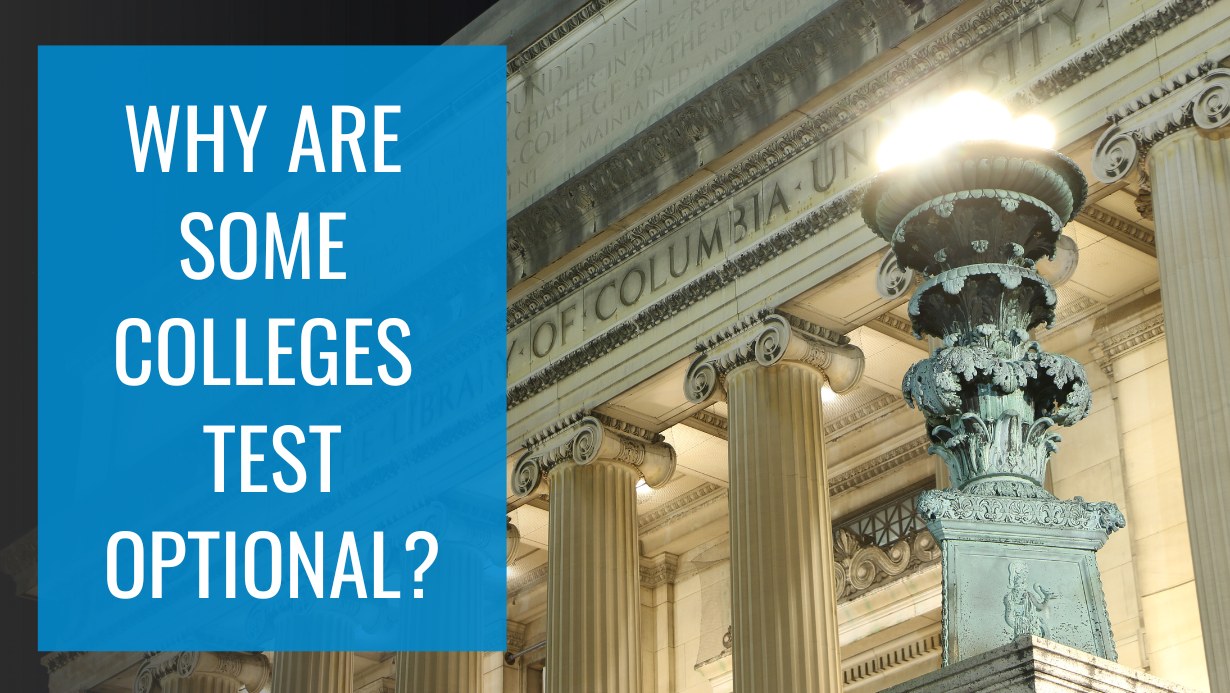The Common Application and Coalition Application have helped mainstream and simplify the application process for students allowing them to apply to multiple schools using the same form versus decades past when students filled out single paper applications for each college. Despite using one (or only a few) platforms to submit your college applications, you still must tailor your application for each university. Between unique supplemental questions, different application deadlines, different application pathways (early decision vs. early action vs. restricted early action vs. early decision 2 vs. regular decision), and different application platforms, students are balancing vastly different application processes for each school.
With more prevalence than before, a newer differentiator has come to the fore: test optional policies. What does it mean when a college is test optional, why aren’t all colleges test optional, and what does that mean for you?

Breaking Down Testing Policies
What is test optional?
Test optional refers to universities that do not require an ACT or SAT score to consider a student’s application complete and allows students to choose if they would like their test scores to be considered in the application for admission. However, test optional is not the only term you are likely to see. The University of California system went test free in 2021, meaning that they do not review ACT or SAT exam scores in their admissions review, and they are not the only college to do so. As an applicant you do not have the option to choose to have scores considered, you will sometimes see this referred to as test blind. Test flexible means that you can choose if you want to send testing but tend to expand on which tests can be considered to include AP or IB exam scores.
Why are so many colleges test optional now?
The Covid-19 pandemic was not the originator of the test optional policy though it certainly brought announcements to news headlines. In fact, the first test optional policy was rolled out in 1969 by Bowdoin College, and leading up to the pandemic other universities were instating similar policies of their own (Bowdoin.edu). By 2019, around 1,050 colleges across the United States had already adopted test optional policies (Fairtest.org). Prior to the pandemic, many arguments for test optional policies centered around equity for low-income students. Multiple studies have shown a correlation between family income and standardized test scores, highlighting that students from high-income backgrounds are more likely to score above 1300 on the SAT, but that the same correlation does not automatically apply to high school grades or rank(Jashick, 2018; UPenn Wharton, 2021). This and other data suggested that mandatory testing in admission applications may have been a barrier for high-potential low-income students.
While equity remains a big part of the conversation, the lockdowns throughout the pandemic, when testing relied on paper exams in testing centers, transformed the discussion of going test optional into a discussion of health, safety, and logistics. How could colleges still require testing when states across the country were in full lockdown, ACT and SAT testing dates were being canceled one after another, and asking students to test despite this could increase the risks of contracting Covid-19? The pandemic has left a lasting impact on the national education landscape. Virtual events and summer programs appear to now be permanent additions, and while students have returned to school and testing is once again being regularly offered, test optional policies have not disappeared.
What does this mean for you?
The testing landscape is ever-changing and that can be scary for an applicant, but the truth is that you have more flexibility and control under test optional than without it. Most parts of the application for college are mandatory, if not submitted your application is not complete and may not be reviewed, test optional gives you a choice.
However, the testing landscape is once again ever-changing! Recently multiple top universities have announced a return to requiring testing in the application (MIT, Dartmouth, Yale) while others have announced that they are making their test optional policies permanent or at least extending them for another cycle or two (Cornell, Duke, NYU). Be sure to double-check the testing policy of the schools you are applying to and give yourself time to test. Unless you are dedicated to only applying to test-optional colleges, even knowing the risk that they might change their policy, it is better to move through junior and senior years of high school, putting your best foot forward with the ACT or SAT. That way, when you apply, if a school is test optional you have the freedom to decide to share your score or not, but you don’t feel locked out of applying to a college that does require testing.
How Can We Help?
Applying to college is stressful, and navigating testing policies adds to it. For assistance in your admissions journey and advice from professionals on navigating the testing landscape, why not contact us today?

Former Assistant Director of Admission at Rice University
Former Senior Admissions Fellow at Dartmouth College
4,000+ Applications Read and Evaluated
Alexis earned their B.A. in Anthropology at Dartmouth College and a M.A. in Social Anthropology at the University of London School of Oriental and African Studies, supported by a Dartmouth fellowship. At Dartmouth College, Alexis was a Senior Admissions Fellow, conducting outreach, writing blog posts, and evaluating applications.



